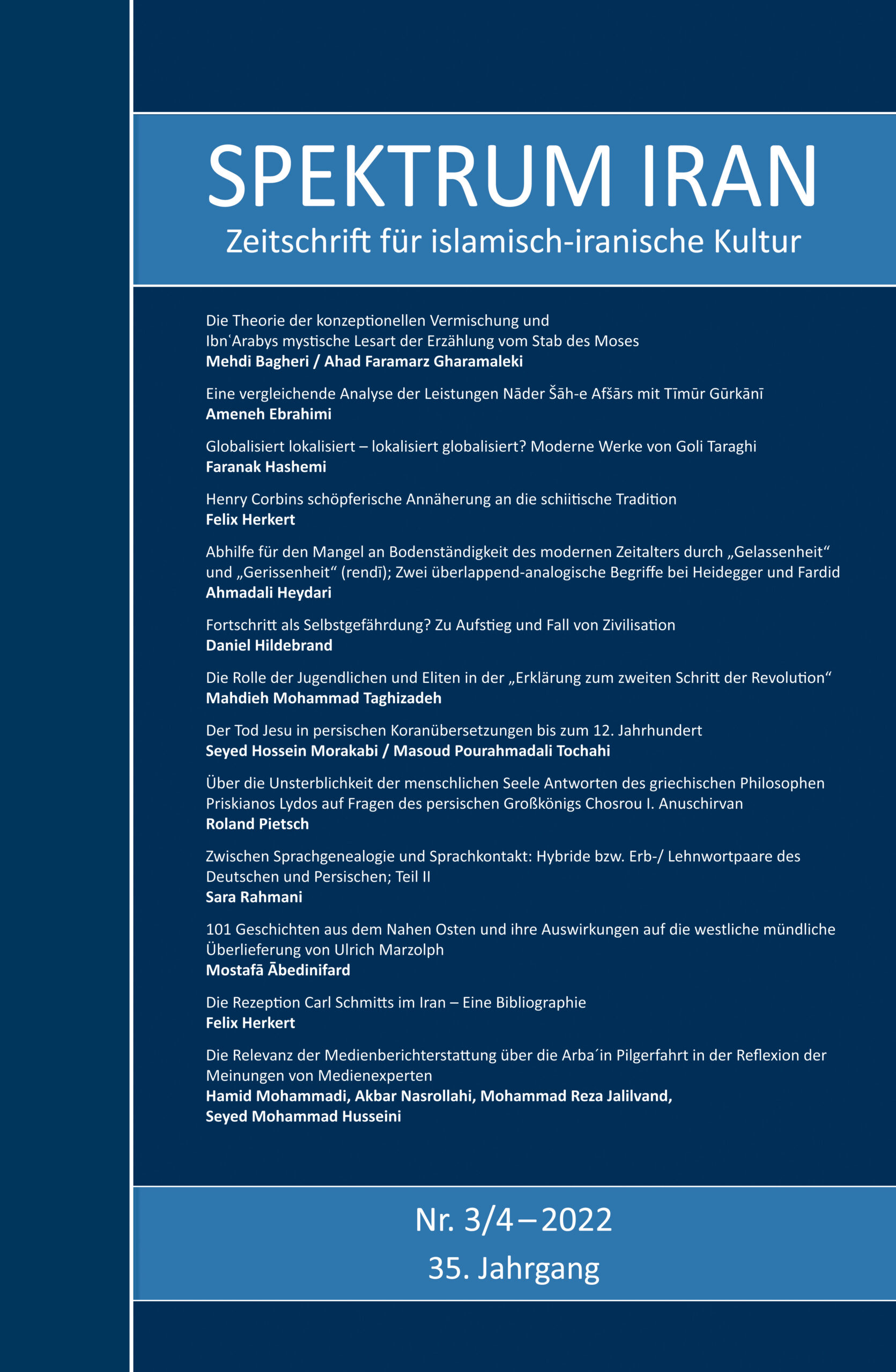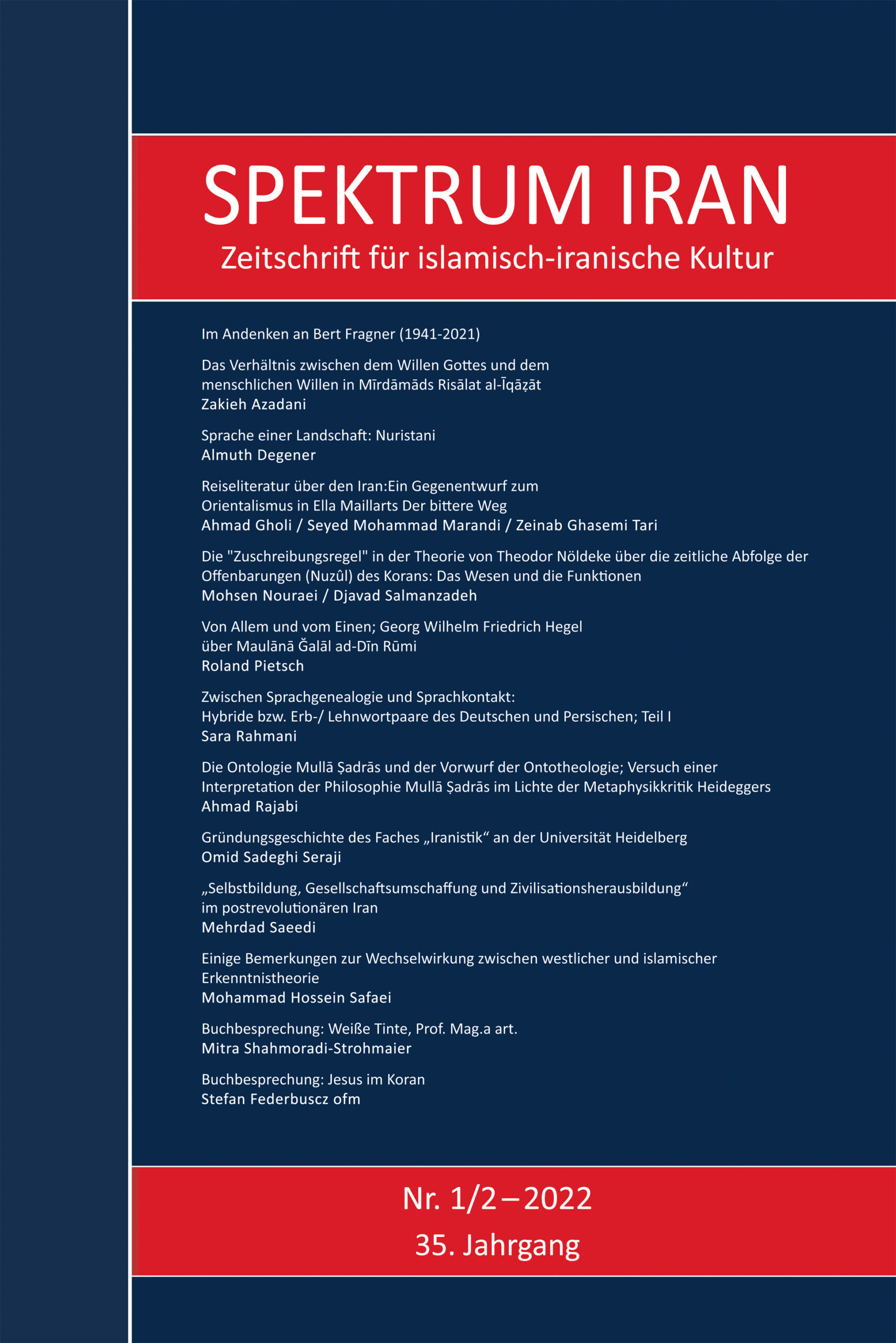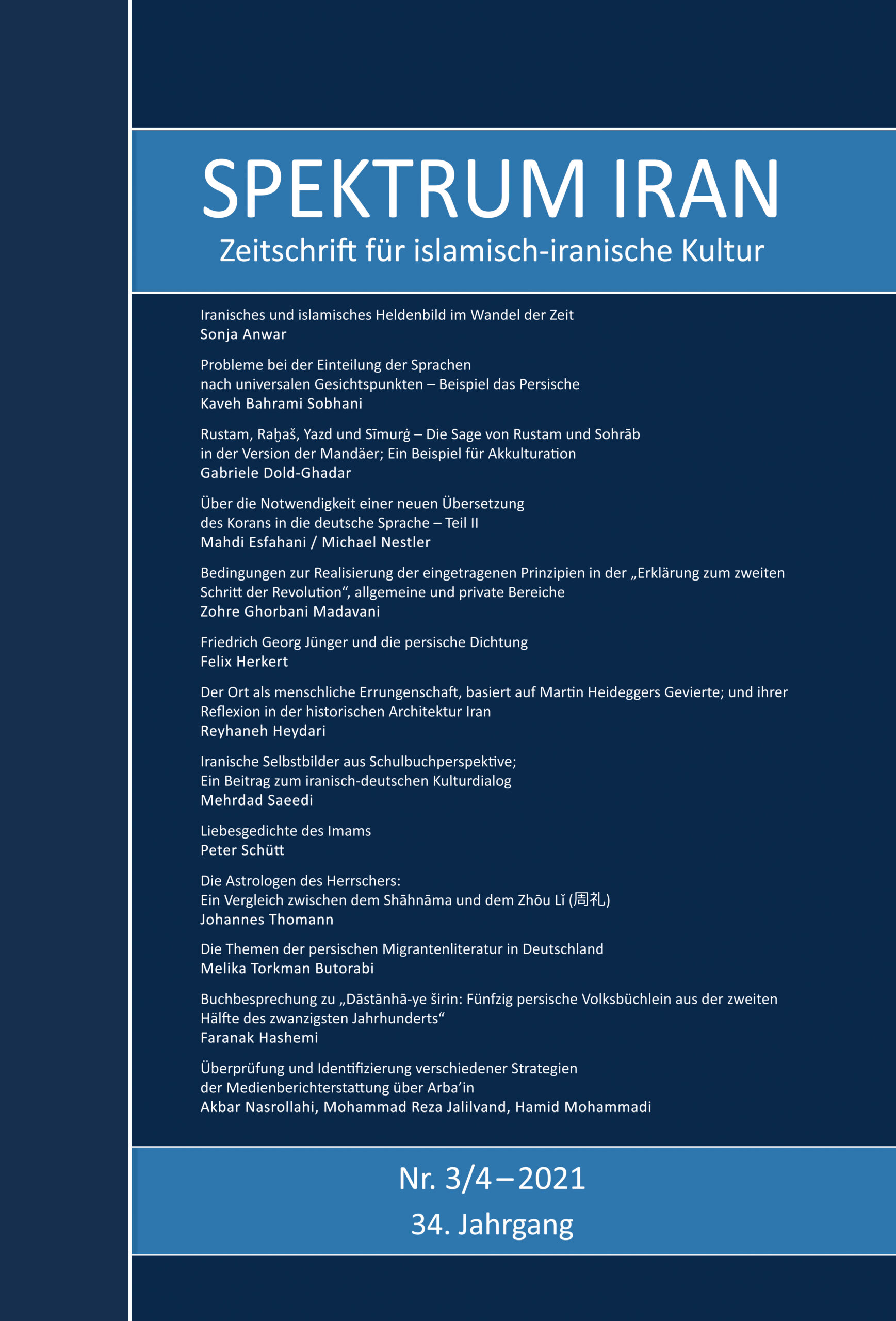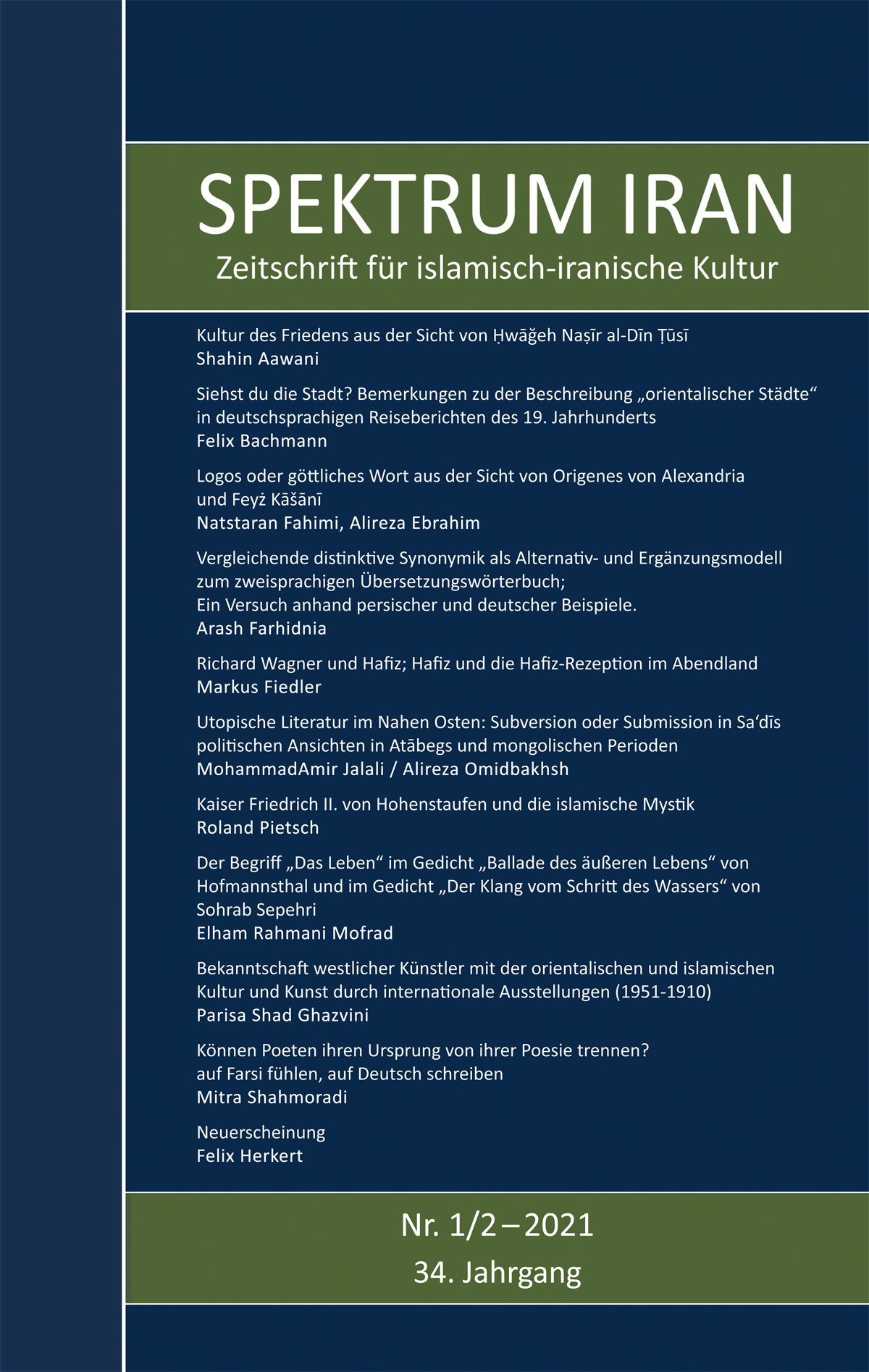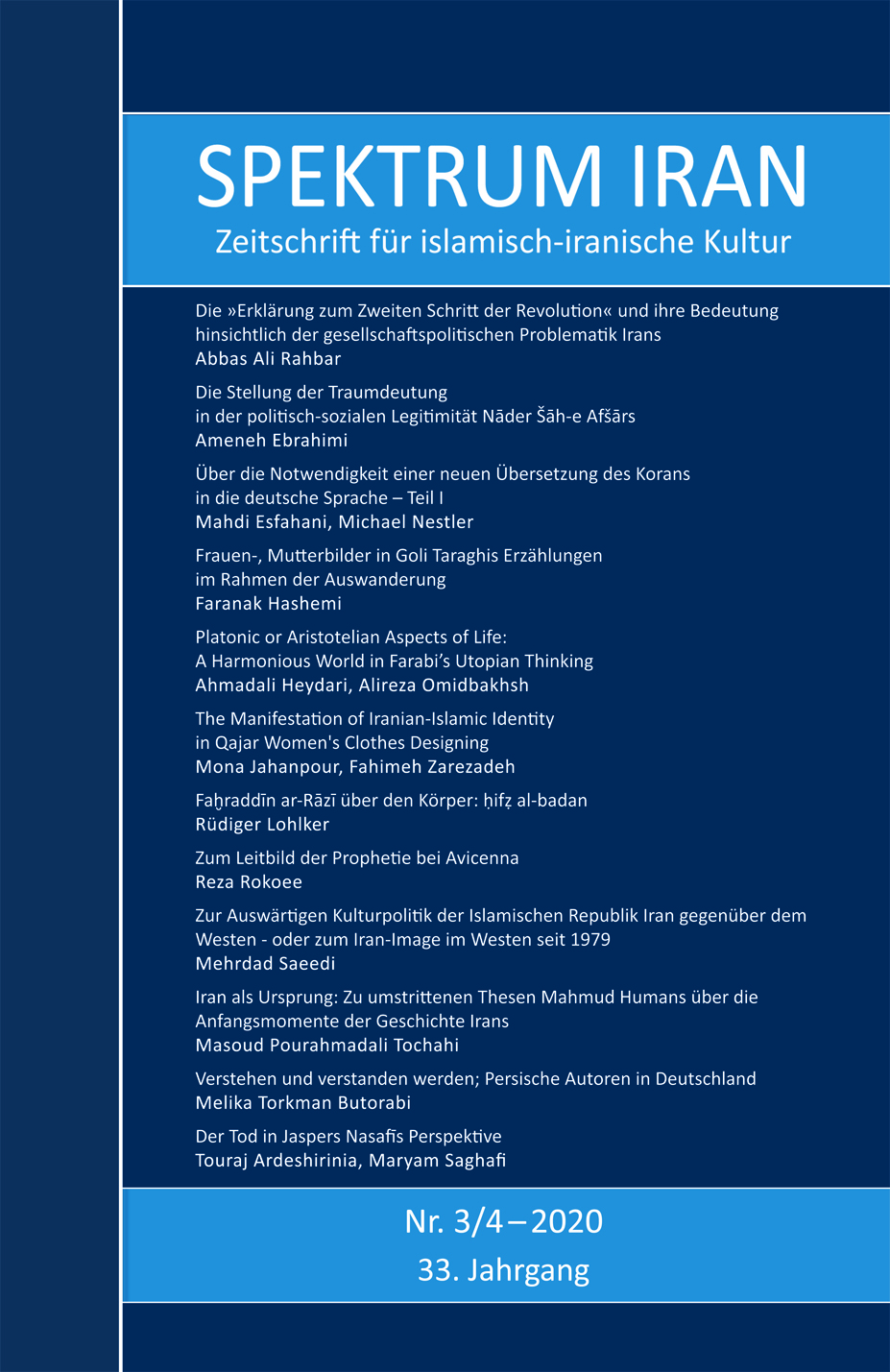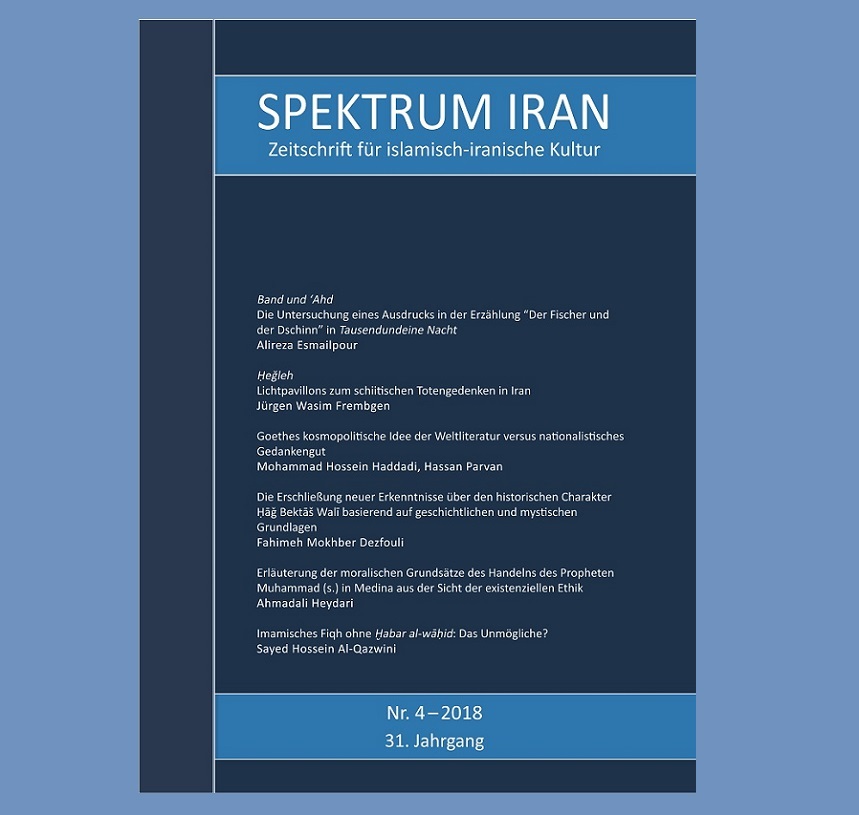Category Archives: Allgemein
Islamic Awakening from Imam Khomeini’s view
Mahmoud Reza Sanam-Zadeh, Neda Parsa
Islamic Awakening is a term under which different Muslim nations can attempt to rebuild their dignified personality and identity. This terms is considered so important and universal that the modern century can be named “Islamic Awakening era”. On the other hand, many commentators and researchers regard the Islamic Revolution as an important and influential factor in formation and advancement of Muslims’ Awakening and the broad uprisings of the Middle East and the North of Africa. Accordingly, considering Imam Khomeini’s eminent and unique role in Islamic Revolution, this questions is raised that what coordinates and principles?
A Critique of Orientalism and the Christian Western View of Islam
Dr. Abdolrahim Gavahi
I would like to thank the host, the Embassy of Islamic Republic of Iran in Zagreb and especially my dear friend Ambassador Sharif-Khodai, Mr. Jamshidi, the cultural representative of Iran in Zagreb, officials of the Faculty of Politics at Zagreb University, and finally all the scholars and students attending this session for their kind invitation, hospitality, and presence.
In den Einsamkeiten Irans – Alfons Gabriels Expeditionen durch persische Wüsten
Prof. Dr. Roland Pietsch
1930 hat der deutsche Geologe und spätere Generalmajor Oskar Ritter von Niedermayer[1], der gemeinsam mit dem österreichischen Kunsthistoriker Ernst Diez[2] von 1912 bis 1914 eine wissenschaftliche Persien-Expedition und von 1914 bis 1915 eine diplomatisch militärische Expedition nach Persien und Afghanistan[3] durchgeführt hatte, das 1929 in München und Berlin veröffentlichte Buch von Alfons Gabriel[4] „Im weltfernen Orient.
Akhlak-i Muhsini – Der Prinzenspiegel – Die nützlichen frommen Lehren des Sheikhs Husain Waiz Kashifi
Kathleen Göbel
Aus der Encyclopedia of Islam erfahren wir über den Autor des Akhlak-i Muhsini Maulana Husain Waiz mit dem Beinamen Al-Kashifi (gest. 1505 in Herat), daß er in Herat lebte, wo er unter Sultan Husain Mirza das Amt eines Herolds ausübte.
Al-Kashifi ist der Autor verschiedener berühmter Werke, darunter auch Qur’ankommentare (Tafsir Husaini), sowie einer Biographie von Muhammad (Rouzat-ush-Shuhada), und verschiedener Werke über Astrologie, einer Veröffentlichung von Bidpais Fabeln im Persischen (Anwar Suheli – Rays of the Star Canopus), einer Anekdotensammlung (Lataif-ut-Tawaef) u.v.m.
Wie ist menschliche Gotteserfahrung[1] trotz des strengen islamischen Monotheismus möglich?
Prof. Dr. Abdoldjavad Falaturi
Bereits die Formulierung „Wie ist menschliche Gotteserfahrung trotz des strengen islamischen Monotheismus möglich?“ soll über die bloße Frageform hinaus das Problem als ein besonderes ansprechen. Es fragt sich nun, warum dies als Problem angesehen werden soll.
The inclusive Approach of Islam towards other Religions
Dr. Abdolrahim Gavahi
Since the success of any dialogue and achieving mutual understanding depends on the corect apprehension of the views and beliefs of the other side, therefore, the purpose of the following paper is to briefly present the views of Islam towards other religions. Obviously, providing such a paper about Christianity and other traditions (by advocates of those religions) facilitates such mutual understanding and provides the very basis of a positive, constructive, and useful dialogue.
Die Tradition der heutigen persischen Kunstmusik
Dr. Thomas Ogger
Der Beginn der heutigen Kunstmusiktradition Persiens[1] ist mit dem »Radīf des Mīrzā ‘Abdollāh« im späten 19. Jahrhundert verknüpft, einer Sammlung und Neukodifizierung überlieferter Melodien und musikalischer Strukturen, deren Relikte sich vor allem im 18. Jahrhundert über viele Jahrzehnte hinweg, in denen Bürgerkriege mit ihren politischen und sozialen Unsicherheiten herrschten, erhalten hatten und als Gelehrtenmusik von wenigen Lehrermeistern an ihre Schüler mündlich weitergegeben wurden.



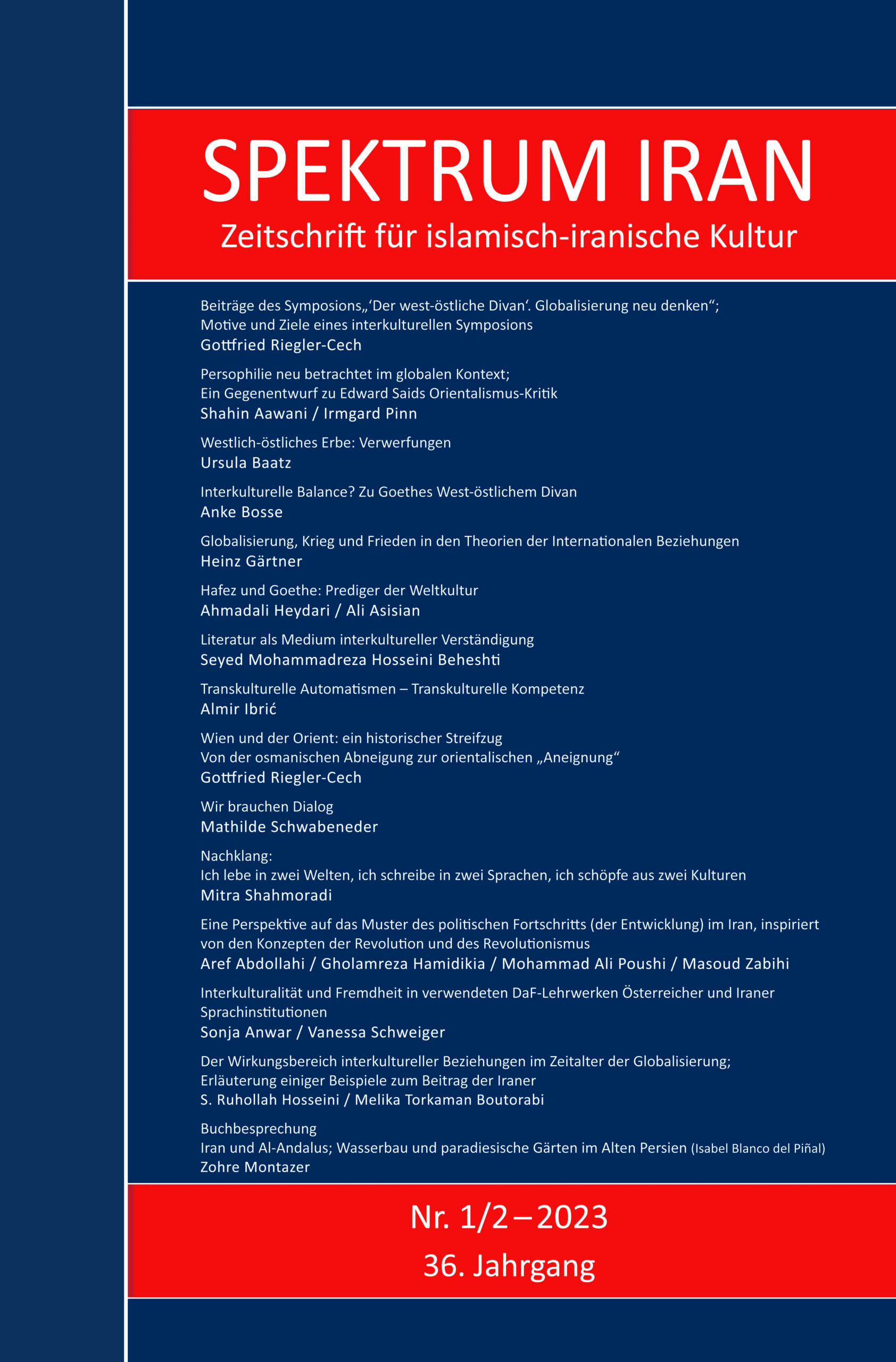 Die Zeitschrift Spektrum Iran mit den Heften Nr. 3 und Nr. 4 des Jahrganges 2023 ist erschienen und mit folgenden Beiträgen verfügbar:
Die Zeitschrift Spektrum Iran mit den Heften Nr. 3 und Nr. 4 des Jahrganges 2023 ist erschienen und mit folgenden Beiträgen verfügbar: 